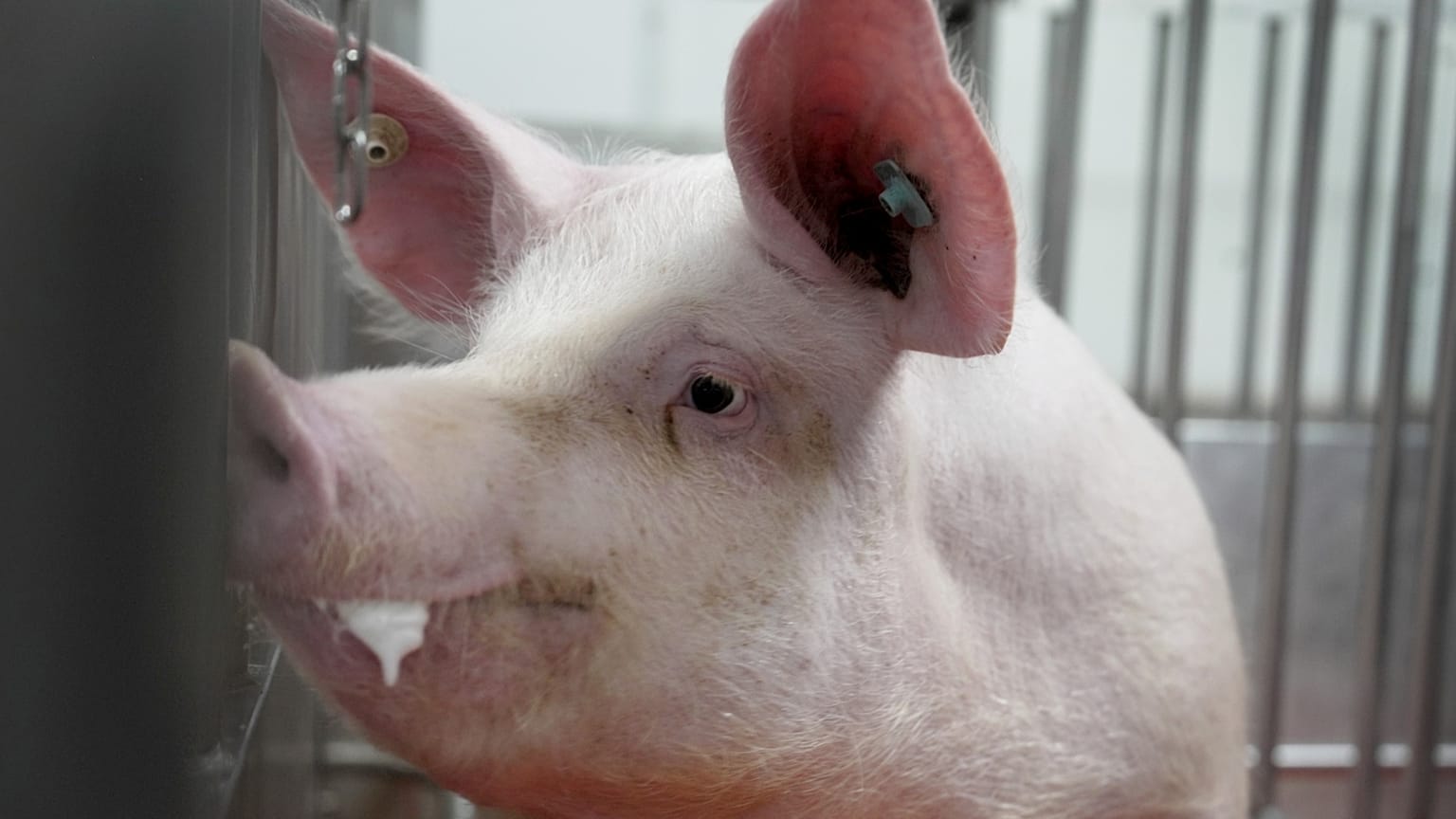Science
First US Clinical Trial of Pig Kidney Transplants Begins at NYU

The first clinical trial testing the transplantation of pig kidneys into humans has officially commenced in the United States. Announced by United Therapeutics on Monday, the initial successful transplant was performed at NYU Langone Health in New York City. This trial marks a significant step forward in the field of xenotransplantation, which aims to address the shortage of available human organs for transplantation.
The trial will initially include six participants, with the possibility of expanding to up to 50 as more transplant centres join the effort. Dr. Robert Montgomery, who leads the transplant team at NYU, confirmed that there is already considerable interest from patients wishing to participate. Specific details regarding the timing of the initial surgery or personal patient information have not been disclosed to protect participant privacy.
As part of a broader initiative, a second US company, eGenesis, is also preparing to launch a clinical trial involving pig kidneys in the coming months. These trials represent the first known instances of xenotransplantation on a clinical scale globally.
The US Food and Drug Administration (FDA) has approved these rigorous studies following a series of “compassionate use” experiments that yielded mixed results. Early attempts at gene-edited pig kidney transplants faced challenges, with the first two transplants proving to be short-lived. Medical teams began shifting focus to patients who required kidneys but were not as critically ill as previous recipients.
In one notable case at NYU, a woman received a pig kidney that functioned for 130 days before she had to resume dialysis. A patient at Massachusetts General Hospital holds the record for the longest survival with a pig kidney, lasting 271 days before returning to dialysis after the organ began to decline.
Montgomery highlighted the lessons learned from each patient’s experience, stating, “This thing is moving in the right direction.” He emphasized that the ability to return to dialysis provides a safety net for recipients. The urgent need for viable organ transplants is underscored by the more than 100,000 people on the US transplant list, the majority of whom require kidneys. Additionally, over 10,000 individuals in eight European countries are also awaiting kidney transplants, according to the Eurotransplant International Foundation.
To enhance the compatibility of pig organs for human transplant, scientists have been genetically modifying pigs. This process includes removing certain pig genes that can trigger immediate rejection by the human immune system and adding human genes to improve compatibility. The kidneys used in United Therapeutics’ trial have undergone 10 gene edits to facilitate better integration into the human body.
As this groundbreaking trial unfolds, it represents hope for many who face the challenges of organ shortages and the complexities of transplantation. The outcomes of these initial procedures may pave the way for larger studies and potentially transformative advancements in the field of organ transplantation.
-

 Top Stories2 months ago
Top Stories2 months agoTributes Surge for 9-Year-Old Leon Briody After Cancer Battle
-

 Entertainment3 months ago
Entertainment3 months agoAimee Osbourne Joins Family for Emotional Tribute to Ozzy
-

 Politics3 months ago
Politics3 months agoDanny Healy-Rae Considers Complaint After Altercation with Garda
-

 Top Stories3 months ago
Top Stories3 months agoIreland Enjoys Summer Heat as Hurricane Erin Approaches Atlantic
-

 World4 months ago
World4 months agoHawaii Commemorates 80 Years Since Hiroshima Bombing with Ceremony
-

 Top Stories2 months ago
Top Stories2 months agoNewcastle West Woman Patricia Foley Found Safe After Urgent Search
-

 Top Stories4 months ago
Top Stories4 months agoFianna Fáil TDs Urgently Consider Maire Geoghegan-Quinn for Presidency
-

 World4 months ago
World4 months agoGaza Aid Distribution Tragedy: 20 Killed Amid Ongoing Violence
-

 World4 months ago
World4 months agoCouple Convicted of Murdering Two-Year-Old Grandson in Wales
-

 Top Stories3 months ago
Top Stories3 months agoClimbing Errigal: A Must-Do Summer Adventure in Donegal
-

 World4 months ago
World4 months agoAristocrat Constance Marten and Partner Convicted of Infant Murder
-

 Top Stories3 months ago
Top Stories3 months agoHike Donegal’s Errigal Mountain NOW for Unforgettable Summer Views









